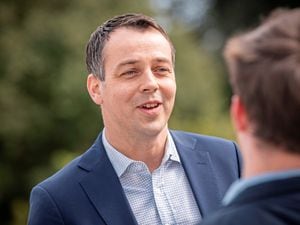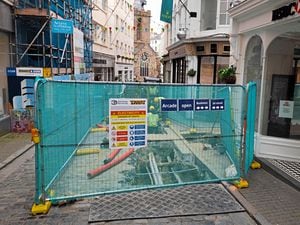Bailiwick Social Prescribing offers non-medical support
NEW free initiative Bailiwick Social Prescribing has been in development for two years.
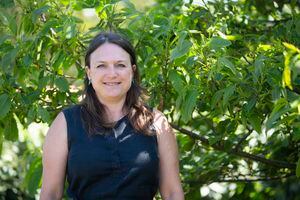
The scheme is part of the Health Improvement Commission, is a collaborative approach between the Health Improvement Commission, Guernsey Community Foundation, Island Health and the third sector, looking after islanders’ wellbeing and recognising that medicine alone cannot always make things better.
Leading the project is Melissa Mitchell, pictured, who said: ‘70% of health is nothing to do with medicine or doctors but is instead related to non-medical aspects such as where we live, loneliness and social isolation, our lifestyle, our level of education, or where we work,’ she said.
‘If someone visits their GP, the best prescription may not always be a medical one.’
Some 50 charities have joined as quality assured partners, with more in the pipeline, recognising that people may benefit from accessing services or joining groups because they offer non-medical support aimed at helping people to be physically active, improve mental and emotional health, or be more socially connected. Or it could be support for other practical matters around home and work.
Initially an Island Health GP can refer someone to a professionally trained BSP link worker who makes time to listen to what is going on in the person’s life, identifying what really matters to them, and will look to find resources locally that the person could benefit from accessing.
‘The initiative draws on the “Five Ways To Wellness” principle – connect, learn, active, notice and give,’ Mrs Mitchell said.
‘It will give doctors and other health professionals another option alongside other treatments.’
People can be treated as individuals, with non-medical solutions tailored to the specific issues they are facing.
Bailiwick Social Prescribing is currently running as a pilot, funded by the Guernsey Community Foundation, until the end of 2022.
It is identified as part of the Bailiwick’s recovery from Covid in the Government Work Plan, with a view to expanding the funding and scheme in the future.
The charity Victoria Hospital Incorporated has revised its criteria to fund GP appointments for people who cannot afford consultations related to the BSP scheme.
‘This is a global movement and Guernsey is really on the front wave of it,’ Mrs Mitchell said.
Organisations sign up to be part of new scheme
GUERNSEY Conservation Volunteers, the Guernsey Employment Trust and Arts for Impact are among more than 50 local organisations which have signed up to be part of the new Bailiwick Social Prescribing scheme.
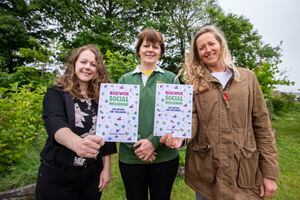
Social prescribing involves a GP referring a patient who may be experiencing mental health difficulties or other life stresses to a ‘link worker’ who will support patients and suggest an appropriate response to improve their health and wellbeing.
The treatments and responses that form social prescriptions involve a variety of activities, typically provided by voluntary and community sector organisations, including arts activities, group learning, gardening, cookery and a range of sports.
‘Arts for Impact were really keen to be involved with social prescribing from the outset because we knew that together we could support the emotional, mental and physical health of our community,’ said engagement director Helen Bonner-Morgan from the charity.
‘There’s a lot of data that says that creative activities can reduce people’s stress levels and even half an hour of creative activity can lower cortisol levels.’
The holistic approach to health care aims to provide doctors and their patients with other options to try before pharmaceutical or therapy-based interventions.
Representatives from the organisations believe the scheme will bring all the services involved together, giving GPs more options for their patients and giving the associated groups another route by which members of the community can access their services.
While the Guernsey Conservation Volunteers do a lot of work for the environment, the group wanted to join the scheme to do more for people in the community.
Group co-ordinator Angela Salmon said: ‘The work that we do in with the environment is a good way of people connecting with nature and also with other people, while having some exercise at the same time.’
Chief executive of the Guernsey Employment Trust, Nikki Ioannou-Droushiotis, added: ‘Employment is part of a wider picture of somebody’s health and there can be many reasons that someone is out of work.
‘So connecting them to the right career can help them to be happier and healthier and being more involved in society.’
'A long-awaited tool to help improve the island's wellbeing'
JOINING the dots between individuals, medical practitioners and the community is the drive behind the new Bailiwick Social Prescribing scheme.
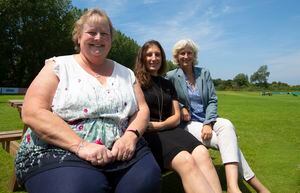
After extensive professional training, link workers are the bridge empowering individuals to find new purpose and social connection, as a non-pharmaceutical prescription to improve health and wellbeing.
Services can be accessed digitally for people in self-isolation or shielding, and in-person meetings can be scheduled at a variety of public and private places – wherever the individual feels comfortable.
‘Social prescribing is really powerful,’ said Trish De Carteret, BSP link worker and link worker manager.
‘My colleagues and myself are really excited about it – it’s going to be a tour de force.’
All UK social prescribing schemes so far have been shown to help, said Dr Louise Brook, an IslandHealth GP.
‘For us this is a long-awaited tool to help improve the island’s wellbeing. Now the community has these fantastic link workers in place to join the dots between patients’ needs and having them met.’
Through her work, Dr Brook has seen a ‘definite need’ for social prescribing.
‘In general, practitioners see lots of people with problems which are often related to loneliness, stress, mood disorders, or problems with housing, employment or their social situation.
‘There may be a role for medicines, but they don’t solve everything, and we’ve seen a tendency from the public and doctors due to lack of alternatives to medicate human distress.’
Time constraints with appointments offered little time to address these problems.
‘While we could prescribe drugs, signpost to therapy, or give life advice, practitioners are limited to 10 to 12 minutes with a patient, whereas link workers have more time to listen to their needs.’
Covid delayed the initial launch, plus exacerbated loneliness and despair, Dr Brook said, so the need for social prescribing is there now more than ever.
She hoped that patients would start to ask about it and that it would eventually lead to a self-referral system.


